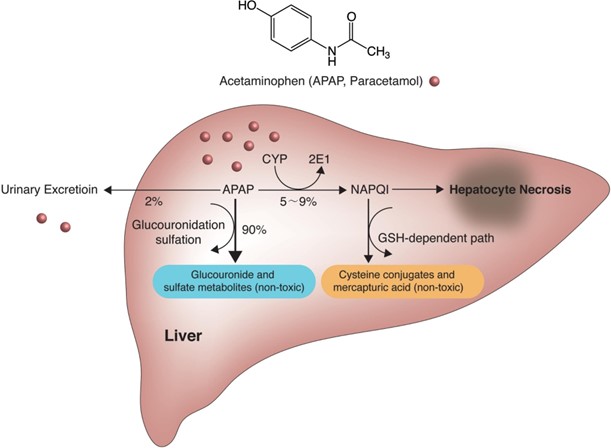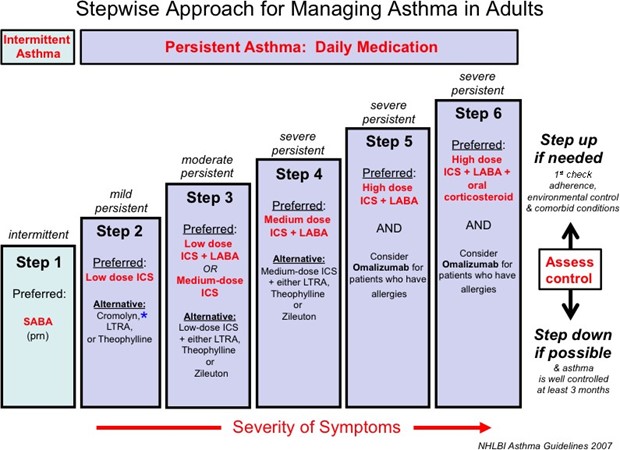A nurse is teaching a client who takes acetaminophen daily to manage mild knee pain. The nurse should instruct the client to monitor for which of the following adverse reactions to this medication?
Tinnitus
Hyperglycemia
Jaundice
Muscle pain
The Correct Answer is C
Acetaminophen is a commonly used over-the-counter pain reliever and fever reducer. One of the potential adverse reactions to acetaminophen is liver toxicity, which can present with symptoms such as jaundice (yellowing of the skin and eyes), dark urine, and pale stools. It is important for the client to be aware of these signs and symptoms and report them to their healthcare provider if they occur. Monitoring for jaundice can help identify any potential liver-related complications associated with acetaminophen use.
The other options provided in the question are not typically associated with acetaminophen use:
- Tinnitus: Tinnitus refers to a perception of ringing or buzzing in the ears. It is not a commonly reported adverse reaction to acetaminophen.
- Hyperglycemia: Hyperglycemia refers to high blood sugar levels. Acetaminophen does not typically cause hyperglycemia as a side effect.
- Muscle pain: Acetaminophen is used to relieve mild to moderate pain, including muscle pain. It is not an adverse reaction to the medication.

Nursing Test Bank
Naxlex Comprehensive Predictor Exams
Related Questions
Correct Answer is ["B","D"]
Explanation
The nurse should include the following information in the teaching about medication reconciliation:
● Provide a list of the client's current medications during admission to a healthcare facility.
● Provide a list of the client's current medications during the change of shift report.
Medication reconciliation is a critical process that involves comparing the medications a patient is currently taking with the medications ordered or intended to be prescribed. It helps ensure accurate and safe medication management during transitions of care. The nurse should emphasize the importance of providing a list of the client's current medications during admission to a healthcare facility. This information helps establish a baseline for the patient's medication regimen and allows healthcare providers to verify and reconcile the medications accurately.
Additionally, the nurse should instruct the class to provide a list of the client's current medications during the change of shift report. This allows for effective communication between healthcare providers, ensuring continuity of care and preventing medication errors or omissions.
While not specifically mentioned in the options, it is important to note that medication reconciliation should be performed at various points, including during the discharge process from a healthcare facility. Discharge medication reconciliation helps ensure a smooth transition to home or another healthcare setting, reduces the risk of medication-related issues, and promotes patient safety and adherence to the prescribed medication regimen.
Regarding over-the-counter medications, it is crucial to include them in the medication reconciliation process. Over-the-counter medications can interact with prescription medications and have potential side effects. Including them in the reconciliation report helps identify any potential interactions or duplications and ensures comprehensive medication management.
Correct Answer is A
Explanation
A. Albuterol is a bronchodilator that provides quick relief by relaxing the muscles around the airways, making it essential to use before a corticosteroid like beclomethasone, which reduces inflammation. Using albuterol first allows for better delivery of the beclomethasone to the airways.
B. I will use both medications immediately after exercising. Albuterol may be used as a rescue inhaler before exercise to prevent exercise-induced bronchospasm, but beclomethasone is a maintenance medication and should not be used immediately after exercising unless prescribed.
C. "If my breathing begins to feel tight, I will use the beclomethasone inhaler immediately.” Beclomethasone is a long-term control medication, not a rescue inhaler. If breathing feels tight or there is an asthma attack, the client should use the albuterol inhaler for immediate relief.
D. I will administer the medications 10 minutes apart.While there is no strict rule about the timing between inhaler uses, the albuterol should be used first to open the airways, and while waiting a few minutes is acceptable, the emphasis should be on using albuterol before beclomethasone rather than a specific time frame.

Whether you are a student looking to ace your exams or a practicing nurse seeking to enhance your expertise , our nursing education contents will empower you with the confidence and competence to make a difference in the lives of patients and become a respected leader in the healthcare field.
Visit Naxlex, invest in your future and unlock endless possibilities with our unparalleled nursing education contents today
Report Wrong Answer on the Current Question
Do you disagree with the answer? If yes, what is your expected answer? Explain.
Kindly be descriptive with the issue you are facing.
